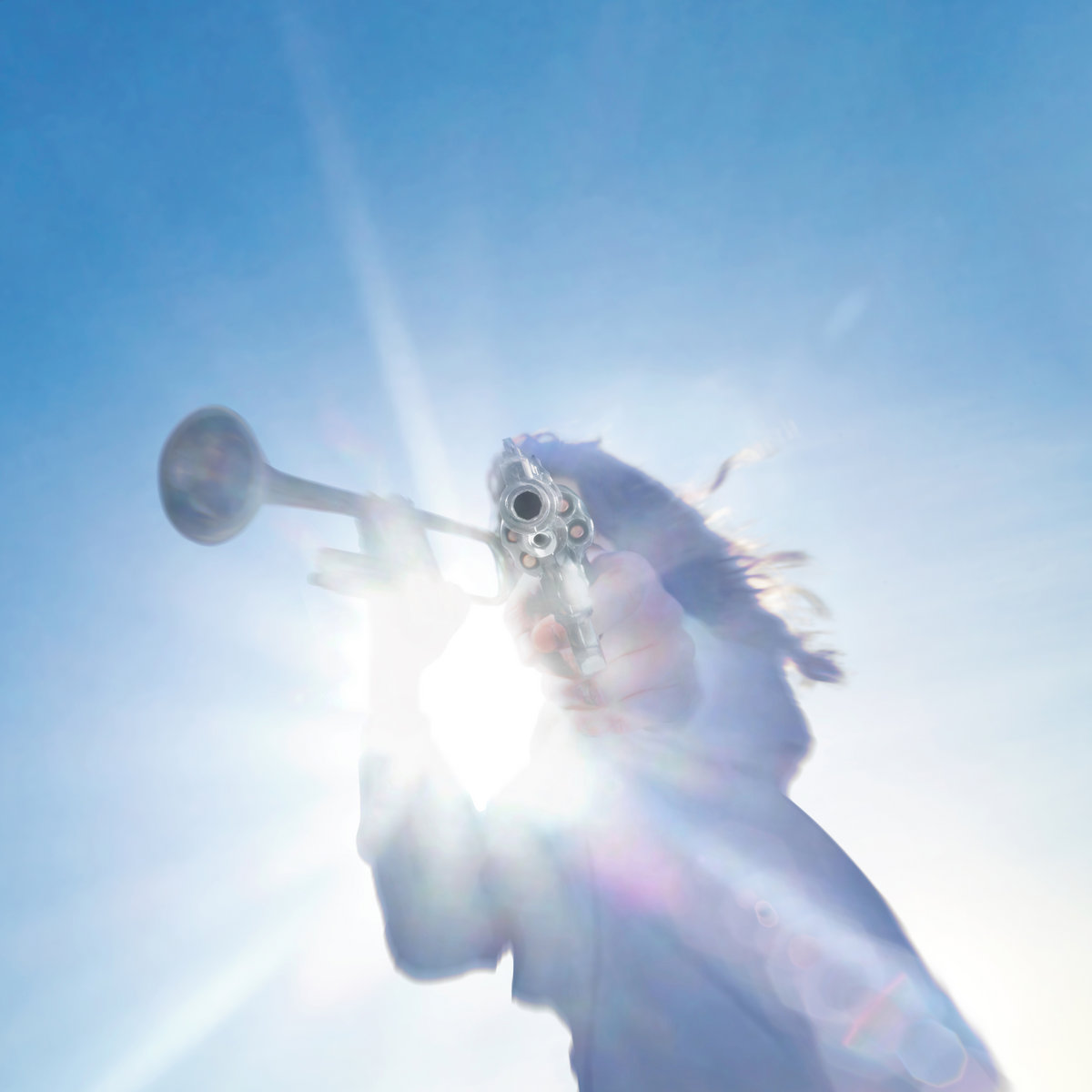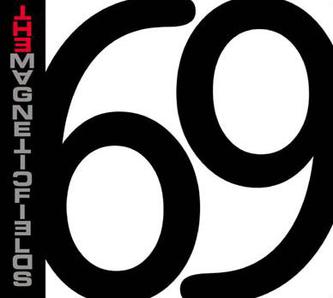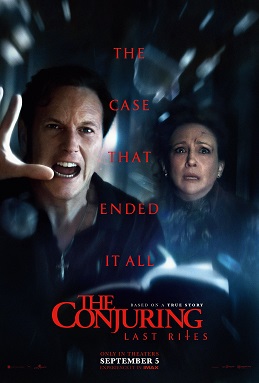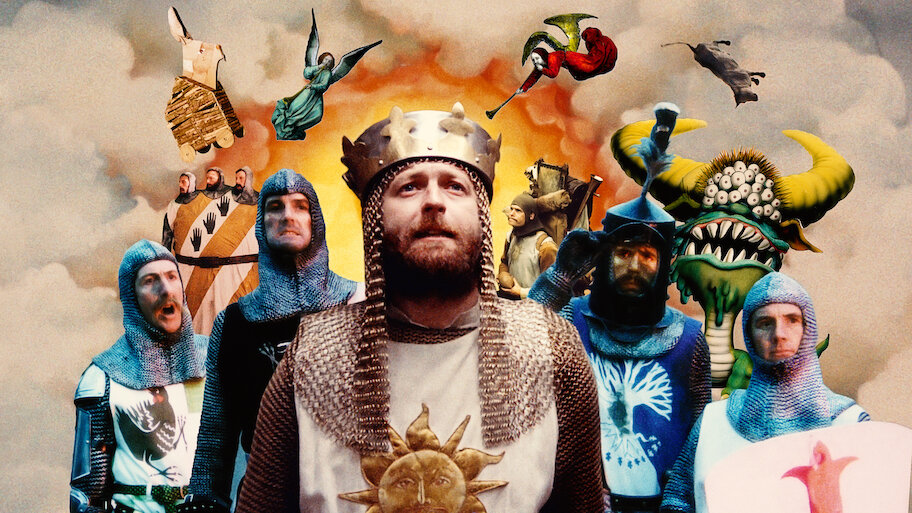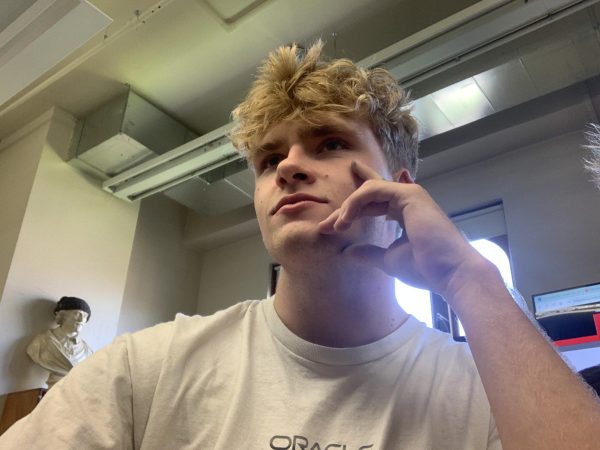“Getting Killed” by Geese is not an entirely new sound. When dissected, the album’s soundscape is the result of reverent homage to a culture long forgotten, a swan song for a spirit that has been watered down by commodification for far too long. In the moment that the chaotic sound of the project wails in your ear for the first time, however, you would be forgiven for thinking that Geese is creating a sound independent of any comparisons. I cannot place my finger on another project, outside the band’s previous work, that gave me the same sensations as this album, so far proving to be one of this year’s most luminant listening experiences.
While it might not feel this way, Geese is a nearly ten-year-old band. The band’s youthful feeling is not commentary on their lack of polish, but instead an extension of their timeliness. As music trends change, and rock music continues to fossilize under the pressure of innovation, Geese is able to reinvent their music and carve a unique space for itself in a sea of pretenders. Lead singer Cameron Winter is a powerful songwriter, the instrumentals on every track are inventive and seemingly improvisational, and the production adds an additional crisp layer of enjoyment to every intricacy.
“Getting Killed” is no different than the band’s other work in these aspects, filled with earworms as much as it is filled with thoughtfulness. The album starts off with its most aggressive track, “Trinidad,” a nearly four minute tirade containing several apocalyptic lines, the chorus being Winter yelling, “There’s a bomb in my car” paired with staggering imagery: “My son is in bed, my daughters are dead, my wife’s in the shed, my husband’s burning lead, the rest are force fed or else baked into bread.”
The album never shows its emotional cards to play as dramatically as in “Trinidad,” which is immediately followed by the relatively upbeat “Cobra,” a plea for independence and carefree living, and a track much more relative in tone with the rest of the album. Heavy and impactful lyricism seems to burrow its way into the bushes, waiting for its time to strike. In the greater context of “Getting Killed,” this approach to social commentary enhances the overall experience of the album, the gentle nest of groovy instrumentation proving to be a sturdy point for lyricism to erupt from. This is seen in tracks like “Islands of Men,” a song about encroaching loneliness and isolation, or in “100 Horses,” which counteracts its catchiness with grim invocations of war and death.
As I listened to “Getting Killed,” I realized, in a rather cliche manner, that they don’t make this type of music anymore. We are in the twilight years of Rock music, and I blame Imagine Dragons. During Rock’s inception, the genre was inseparable from the revolutionaries, who aimed to create a new type of music that brandished its own ferocity as a stance against the conservative culture of music during the mid-twentieth century. Rock music soon became synchronous with the spirit of rebellion, the youth of the ‘60s, ‘70s, and ‘80s all using the medium to fight against the generations that came before them. The Man would shake his fist, and they would gyrate their hips.
The death of any revolution eventually befell rock music, however. The youth who adored it grew up, and became the oppressors, this time, of a different brand of “degenerate art.” Hip Hop, punk and electronic music all became more subversive than rock, which soon became a genre that had its golden years put inside a glass case. Eventually, it became so commercialized and altogether separated from its original spirit that the music became soulless, and Imagine Dragons and their posse of belligerent profiteers became the face of the once great genre. Since, rock has been begging for young minds to reinvent it, to resuscitate one of the greatest beacons of revolt that our culture has ever produced.
“Getting Killed” is exactly the type of music that we need right now. It is evocative, it is explosive, it is vital to the American spirit that has been so crushed in recent years. “Getting Killed” is not just the result of a group of artists who have learned to master their craft, but instead a painting from a new brush entirely. When Cameron Winter sings, and the band’s gentle instrumentation waddles on in passion, I breathe in new air and smile.
With their newest album, Geese set out to make us think deeply, just as much as we nod our heads in sync with their recrafting of the DNA of rock. The best any artist can hope to accomplish is be emotionally impactful, while simultaneously being new and inventive. Winter and the band effortlessly accomplish this ultimate goal, with an album that brings life into a world I once believed would not be able to return from the darkness it has been subjugated to.

